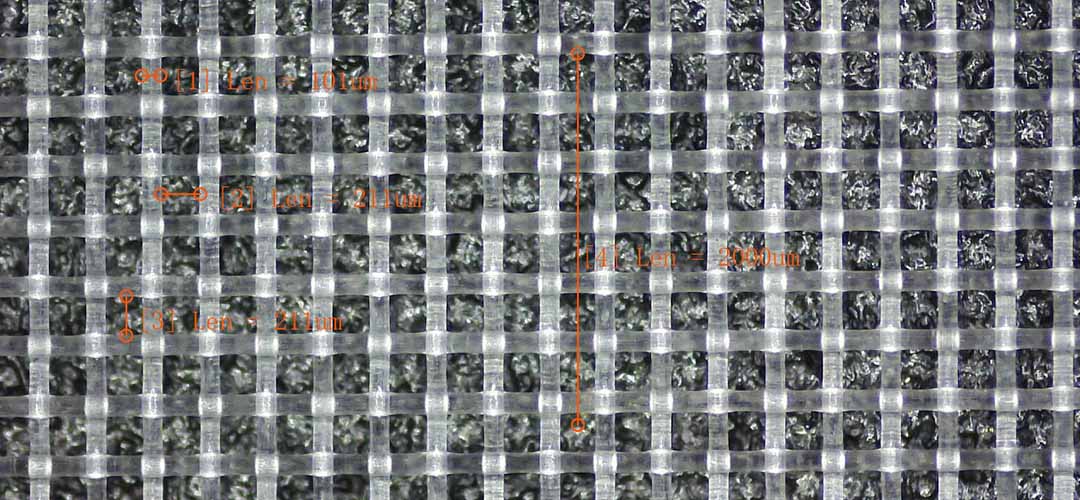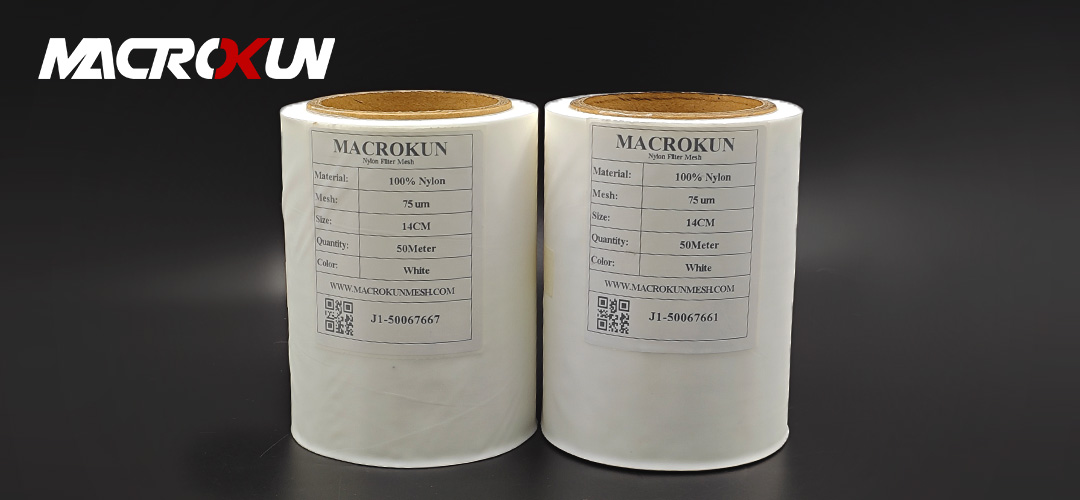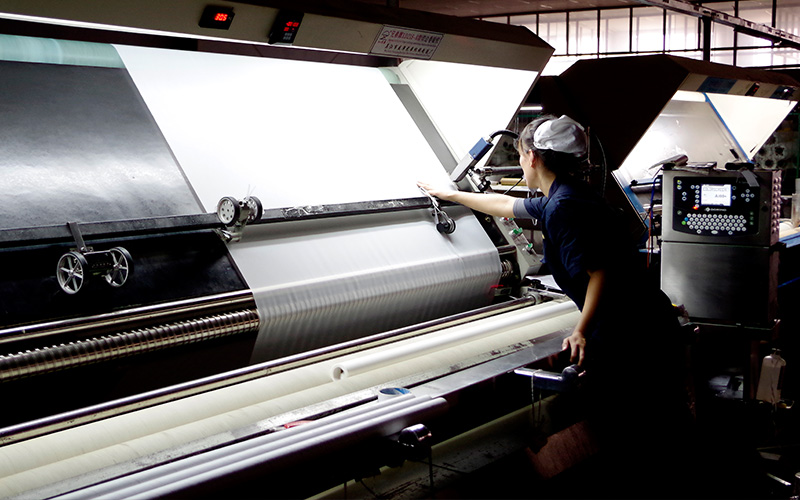Micron nylon mesh sheets are widely used in various industries for filtration purposes. These sheets are known for their excellent filtration capabilities and durability, making them a popular choice among businesses. In this article, we will explore the benefits of using micron nylon mesh sheets for filtration and compare different options available in the market.
One of the key advantages of using micron nylon mesh sheets for filtration is their ability to effectively remove impurities from liquids and gases. These sheets are designed with a specific mesh size, which determines the size of particles that can pass through. This allows businesses to customize their filtration process based on their specific needs.

Another benefit of using micron nylon mesh sheets is their durability. These sheets are made from high-quality nylon material, which is known for its strength and resistance to wear and tear. This ensures that the sheets can withstand the rigors of filtration processes without getting damaged or torn easily.
Furthermore, micron nylon mesh sheets offer excellent chemical resistance. They can withstand exposure to a wide range of chemicals without deteriorating or losing their filtration efficiency. This makes them suitable for use in industries where filtration involves contact with corrosive substances.
In addition to their filtration capabilities, micron nylon mesh sheets are also easy to clean and maintain. They can be easily washed or rinsed to remove any accumulated impurities, ensuring that they continue to perform optimally. This saves businesses time and effort in maintaining their filtration systems.
When it comes to choosing the right micron nylon mesh sheet for specific filtration needs, there are several options available in the market. The most common options include monofilament and multifilament mesh sheets.
Monofilament mesh sheets are made from a single strand of nylon, which results in a smooth and uniform surface. These sheets offer excellent particle retention and are ideal for applications where fine filtration is required. They are commonly used in industries such as pharmaceuticals, food processing, and electronics.
On the other hand, multifilament mesh sheets are made from multiple strands of nylon, which create a more open and porous structure. These sheets are suitable for applications where high flow rates are required, such as in water treatment plants or industrial processes. They are also commonly used in the automotive and aerospace industries.
When choosing between monofilament and multifilament mesh sheets, businesses need to consider their specific filtration requirements. Monofilament sheets are more suitable for fine filtration, while multifilament sheets are better for high flow rate applications.
In conclusion, micron nylon mesh sheets offer several benefits for businesses in need of effective filtration solutions. Their excellent filtration capabilities, durability, chemical resistance, and ease of maintenance make them a popular choice in various industries. When choosing the right micron nylon mesh sheet, businesses should consider their specific filtration needs and choose between monofilament and multifilament options accordingly. By selecting the right micron nylon mesh sheet, businesses can ensure efficient and reliable filtration processes.
Micron nylon mesh sheets are widely used in various industries for filtration purposes. These sheets are known for their durability, flexibility, and excellent filtration capabilities. However, choosing the right micron size for your specific filtration needs can be a daunting task. In this article, we will compare different micron nylon mesh sheets and provide some guidance on how to choose the right micron size for your filtration needs.

When it comes to selecting the appropriate micron size, it is essential to understand the concept of microns. A micron is a unit of measurement that represents one-millionth of a meter. In the context of filtration, it refers to the size of particles that can pass through the mesh sheet. The smaller the micron size, the finer the filtration.
One of the most common micron sizes used in filtration is 100 microns. This size is suitable for filtering larger particles such as sand, sediment, and debris. It is commonly used in applications like water filtration, oil filtration, and industrial processes where coarse filtration is required.
If you need to filter smaller particles, you may consider using a finer micron size. For example, a 50-micron nylon mesh sheet is ideal for filtering smaller particles like silt and fine sand. It is commonly used in applications such as wastewater treatment, food processing, and pharmaceutical industries.
For even finer filtration, you can opt for micron sizes below 50. A 25-micron nylon mesh sheet is suitable for filtering fine particles like pollen, dust, and algae. It is commonly used in applications such as air filtration, chemical processing, and laboratory testing.

If you require extremely fine filtration, micron sizes below 25 are available. A 10-micron nylon mesh sheet is capable of filtering very fine particles like bacteria and viruses. It is commonly used in applications such as medical filtration, electronics manufacturing, and precision engineering.
When choosing the right micron size for your filtration needs, it is crucial to consider the specific requirements of your application. Factors such as the type of particles to be filtered, the desired level of filtration, and the flow rate should be taken into account.
Additionally, it is essential to consider the compatibility of the nylon mesh sheet with the substances being filtered. Nylon is known for its chemical resistance, but certain chemicals may degrade or damage the mesh over time. It is advisable to consult with the manufacturer or supplier to ensure that the chosen micron size is suitable for your specific application.
In conclusion, selecting the right micron size for your filtration needs is crucial to achieve optimal results. Understanding the concept of microns and considering factors such as particle size, desired level of filtration, flow rate, and compatibility with substances being filtered will help you make an informed decision. Whether you need coarse filtration or extremely fine filtration, there is a micron nylon mesh sheet available to meet your specific requirements.
When it comes to filtration needs, choosing the right material is crucial to achieving the desired results. One popular option for filtration is micron nylon mesh sheets, which offer a range of benefits for various applications. However, it’s important to consider how these mesh sheets compare to other types of filtration materials to determine which is best suited for specific needs.
Micron nylon mesh sheets are known for their durability and versatility. They are made from a fine nylon material that is woven into a mesh pattern, allowing for the filtration of particles of different sizes. These sheets are available in various micron sizes, ranging from coarse to fine, to accommodate different filtration requirements. The flexibility of micron nylon mesh sheets makes them suitable for a wide range of applications, including water filtration, air filtration, and food processing.
One of the key advantages of micron nylon mesh sheets is their ability to provide precise filtration. The fine mesh pattern allows for the removal of particles as small as a few microns, making them ideal for applications that require high levels of filtration efficiency. Additionally, micron nylon mesh sheets are resistant to chemicals and abrasion, ensuring long-lasting performance in demanding environments.
In comparison to other types of filtration materials, such as paper filters or metal screens, micron nylon mesh sheets offer several distinct advantages. Paper filters are often limited in their filtration capabilities and can easily tear or degrade over time. Metal screens, while durable, may not provide the same level of precision filtration as micron nylon mesh sheets. Additionally, metal screens can be heavy and difficult to clean, making them less practical for certain applications.
Another important consideration when comparing filtration materials is cost. Micron nylon mesh sheets are generally more cost-effective than other types of filtration materials, such as ceramic filters or activated carbon filters. This makes them a popular choice for businesses looking to achieve high levels of filtration efficiency without breaking the bank. Additionally, the durability of micron nylon mesh sheets means that they can be reused multiple times, further reducing overall costs.
In conclusion, micron nylon mesh sheets offer a range of benefits for specific filtration needs. Their durability, versatility, and precise filtration capabilities make them a popular choice for a wide range of applications. When comparing micron nylon mesh sheets to other types of filtration materials, it’s clear that they offer distinct advantages in terms of performance and cost-effectiveness. By carefully considering the specific requirements of a filtration application, businesses can determine whether micron nylon mesh sheets are the best choice for their needs.
When it comes to filtration systems, choosing the right micron nylon mesh sheet is crucial for achieving optimal results. Different applications require different levels of filtration, and selecting the appropriate micron size can make all the difference in the efficiency and effectiveness of the system. In this article, we will explore three case studies that highlight the importance of selecting the right micron nylon mesh sheet for specific filtration needs.
Case Study 1: Water Filtration System
| Model | Mesh Count (/cm) |
Mesh Count (/inch) |
Thread Dia (um) |
Mesh Opening (um) |
Thickness (um) |
Weight (g/m2) |
| NL4/1950 | 4 | 10 | 550 | 1950 | 1100 | 307 |
| NL5/1500 | 5 | 13 | 500 | 1500 | 1000 | 318 |
| NL6/1267 | 6 | 15 | 400 | 1267 | 800 | 244 |
| NL7/1079 | 7 | 18 | 350 | 1079 | 700 | 218 |
| NL8/900 | 8 | 20 | 350 | 900 | 700 | 249 |
| NL9/861 | 9 | 23 | 250 | 861 | 500 | 143 |
| NL9/811 | 9 | 23 | 300 | 811 | 600 | 206 |
| NL10/750 | 10 | 25 | 250 | 750 | 500 | 159 |
| NL10/700 | 10 | 25 | 300 | 700 | 600 | 229 |
| NL12/583 | 12 | 30 | 250 | 583 | 500 | 191 |
| NL12/533 | 12 | 30 | 300 | 533 | 600 | 274 |
| NL14/514 | 14 | 36 | 200 | 514 | 340 | 142 |
| NL16/425 | 16 | 40 | 200 | 425 | 340 | 160 |
| NL20/350 | 20 | 50 | 150 | 350 | 255 | 113 |
| NL20/300 | 20 | 50 | 200 | 300 | 340 | 200 |
| NL24/267 | 24 | 60 | 150 | 267 | 255 | 135 |
| NL28/237 | 28 | 70 | 120 | 237 | 204 | 101 |
| NL30/213 | 30 | 76 | 120 | 213 | 204 | 110 |
| NL32/213 | 32 | 80 | 100 | 213 | 170 | 80 |
| NL36/178 | 36 | 90 | 100 | 178 | 170 | 90 |
| NL40/150 | 40 | 100 | 100 | 150 | 170 | 100 |
| NL43/153 | 43 | 110 | 80 | 153 | 136 | 70 |
| NL48/128 | 48 | 120 | 80 | 128 | 136 | 77 |
| NL56/119 | 56 | 140 | 60 | 119 | 102 | 50 |
| NL64/96 | 64 | 160 | 60 | 96 | 102 | 58 |
| NL72/89 | 72 | 180 | 50 | 89 | 85 | 45 |
| NL80/75 | 80 | 200 | 50 | 75 | 85 | 50 |
| NL100/57 | 100 | 250 | 43 | 57 | 73 | 46 |
| NL110/48 | 110 | 280 | 43 | 48 | 73 | 52 |
| NL120/48 | 120 | 300 | 35 | 48 | 60 | 37 |
| NL120/40 | 120 | 300 | 43 | 40 | 73 | 55 |
| NL130/42 | 130 | 330 | 35 | 42 | 60 | 40 |
| NL130/34 | 130 | 330 | 43 | 34 | 73 | 61 |
| NL140/36 | 140 | 350 | 35 | 36 | 60 | 43 |
| NL157/25 | 157 | 400 | 43 | 25 | 73 | 74 |
| NL180/20 | 180 | 450 | 39 | 20 | 66 | 68 |
| NL200/15 | 200 | 500 | 39 | 15 | 66 | 76 |
| NL220/10 | 220 | 550 | 39 | 10 | 66 | 84 |
| NL240/5 | 240 | 600 | 39 | 5 | 66 | 91 |
In a water filtration system, the goal is to remove impurities and contaminants from the water to make it safe for consumption. One company was using a 100-micron nylon mesh sheet in their filtration system, but they were finding that it was not effectively removing all of the particles from the water. After consulting with a filtration expert, they decided to switch to a 50-micron nylon mesh sheet. The results were immediately noticeable, as the new sheet was able to capture smaller particles and provide cleaner, safer water for their customers.
Case Study 2: Oil Filtration System
In an oil filtration system, the goal is to remove debris and contaminants from the oil to prolong the life of machinery and equipment. A manufacturing plant was using a 200-micron nylon mesh sheet in their oil filtration system, but they were experiencing frequent breakdowns and maintenance issues due to the presence of small particles in the oil. After conducting a thorough analysis, they decided to switch to a 100-micron nylon mesh sheet. The new sheet was able to capture smaller particles and prevent them from circulating through the machinery, resulting in fewer breakdowns and lower maintenance costs.
Case Study 3: Air Filtration System
In an air filtration system, the goal is to remove dust, pollen, and other airborne particles to improve air quality and reduce respiratory issues. A hospital was using a 50-micron nylon mesh sheet in their air filtration system, but they were finding that it was not effectively capturing all of the particles in the air. After consulting with a filtration specialist, they decided to switch to a 20-micron nylon mesh sheet. The new sheet was able to capture smaller particles and provide cleaner, healthier air for patients and staff.
In conclusion, selecting the right micron nylon mesh sheet is essential for achieving optimal results in filtration systems. By choosing the appropriate micron size for specific filtration needs, companies can improve efficiency, reduce maintenance costs, and provide cleaner, safer environments for their customers and employees. It is important to consult with filtration experts to determine the best micron size for each application and to regularly monitor and maintain filtration systems to ensure continued effectiveness. By investing in high-quality micron nylon mesh sheets and staying informed about the latest advancements in filtration technology, companies can achieve superior results and enhance the overall performance of their filtration systems.
Pre: Why Nylon Mesh for Filter Cloth Ensures High Filtration Accuracy
Next: Top Applications of Micron Nylon Mesh Sheets in Modern Filtration Systems

MACROKUN has established long-term and stable cooperative relations with many transportation companies such as China Post, DHL, FEDEX, USPS, UPS, etc. Of course, MACROKUN can also provide air and sea transportation. The powerful logistics system enables all MACROKUN'S Printing Mesh, Filter Mesh and Filter Bags and so on to be easily and efficiently transported to any place. For quotes and inquiries, please email our sales team.





